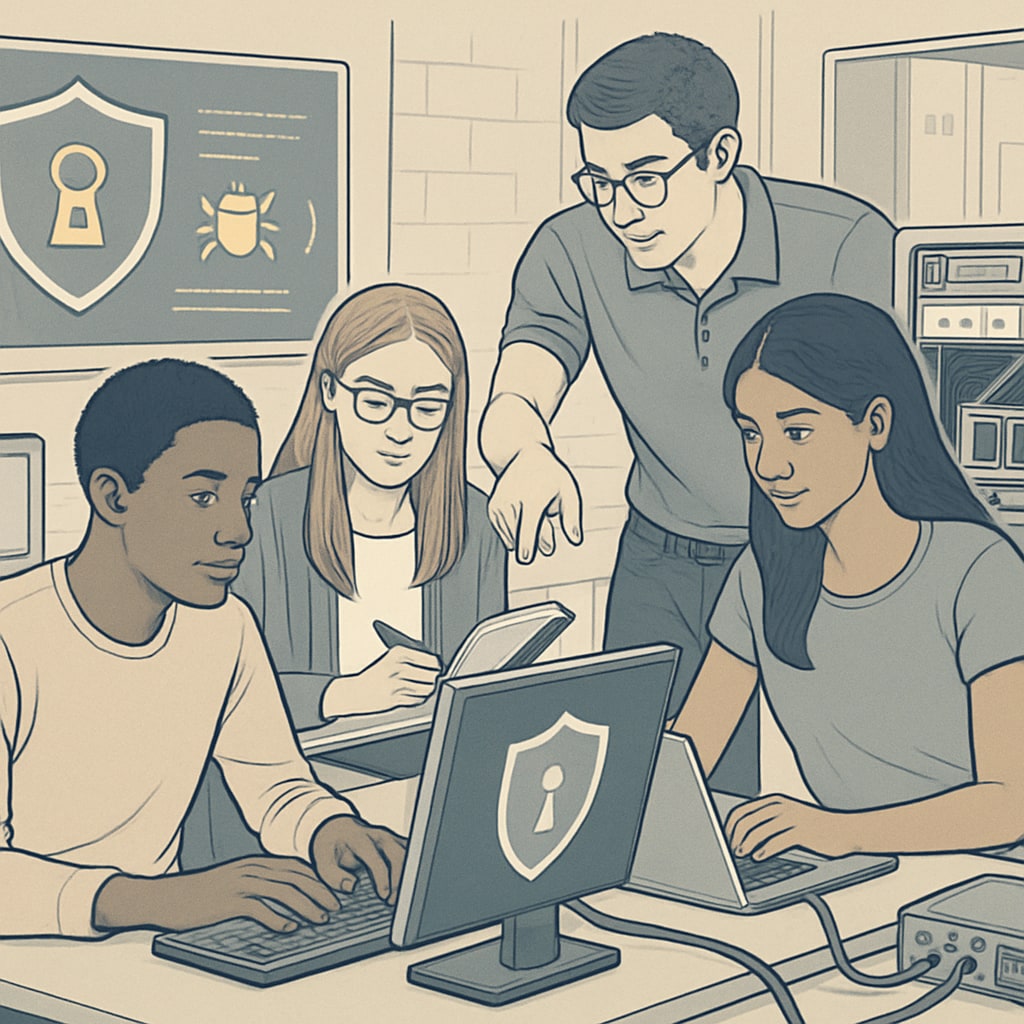When it comes to cybersecurity jobs, the debate over university reputation versus skills is a recurring topic. Many aspiring professionals wonder whether attending a prestigious university will significantly enhance their career prospects. It’s undeniable that “university reputation, employment, cybersecurity” are interlinked in certain ways, but how much does institutional prestige truly matter compared to technical expertise? This article explores the balance between university reputation and job-related skills, while offering practical advice for K-12 students on how to plan a successful cybersecurity career.
Do Employers Care About University Reputation?
University reputation has long been a factor in recruitment decisions, especially in industries with well-established traditions like law or finance. However, the tech industry, including cybersecurity, tends to prioritize skills over credentials. A candidate’s ability to identify vulnerabilities, implement security measures, and adapt to rapidly evolving threats often outweighs the university name on their diploma.
For example, major tech companies such as Google and Microsoft often emphasize practical skills during hiring processes. According to Britannica’s overview of cybersecurity, the field constantly evolves, requiring professionals to stay updated on new technologies and threats. This dynamic nature of cybersecurity makes hands-on experience and certifications, such as CISSP (Certified Information Systems Security Professional), more valuable than academic prestige alone.

Skills That Matter More Than University Prestige
While reputation may open doors, it is the actual skillset that ensures long-term success in the cybersecurity industry. Employers often look for the following core competencies:
- Technical Expertise: Proficiency in programming languages such as Python, Java, or C++ is crucial.
- Problem-Solving Abilities: Cybersecurity often involves complex challenges that require creative solutions.
- Certifications: Industry-recognized certifications like CEH (Certified Ethical Hacker) or CompTIA Security+ serve as proof of specialized knowledge.
- Soft Skills: Communication and teamwork are essential, as cybersecurity professionals often collaborate with other departments.
In addition, hands-on experience through internships or real-world projects often carries more weight than formal education. Platforms like LinkedIn are filled with professionals who have transitioned into cybersecurity from unrelated fields by acquiring these critical skills and showcasing their expertise.

Advice for K-12 Students Planning a Cybersecurity Career
For younger students interested in cybersecurity, focusing on skill-building from an early age can be far more effective than chasing university prestige. Here are some actionable tips for K-12 students:
- Explore Early: Participate in cybersecurity camps or online coding platforms like Code.org to build foundational knowledge.
- Certifications: Begin earning entry-level certifications such as CompTIA IT Fundamentals to demonstrate commitment to the field.
- Networking: Join cybersecurity clubs or forums to connect with industry professionals and gain valuable insights.
- Real-World Practice: Engage in hands-on projects through platforms like TryHackMe or Hack The Box.
- Consider University Strengths: If choosing a college, focus on programs with strong cybersecurity labs and partnerships with tech companies, rather than purely on institutional prestige.
By prioritizing these steps, students can ensure they are well-equipped for the competitive cybersecurity landscape, regardless of the university they attend.
Conclusion: Balancing Reputation and Skills
While university reputation can provide initial advantages, the cybersecurity industry is increasingly shifting its focus toward practical skills and certifications. As a result, aspiring professionals should aim to build technical expertise, gain hands-on experience, and cultivate essential soft skills. For K-12 students, early exposure and consistent skill development will pave the way for a successful career. Ultimately, the value of a cybersecurity professional lies in their ability to protect systems and combat threats, not just in the name of the institution they graduated from.
For more in-depth insights on cybersecurity education and careers, refer to Cybersecurity on Wikipedia.


